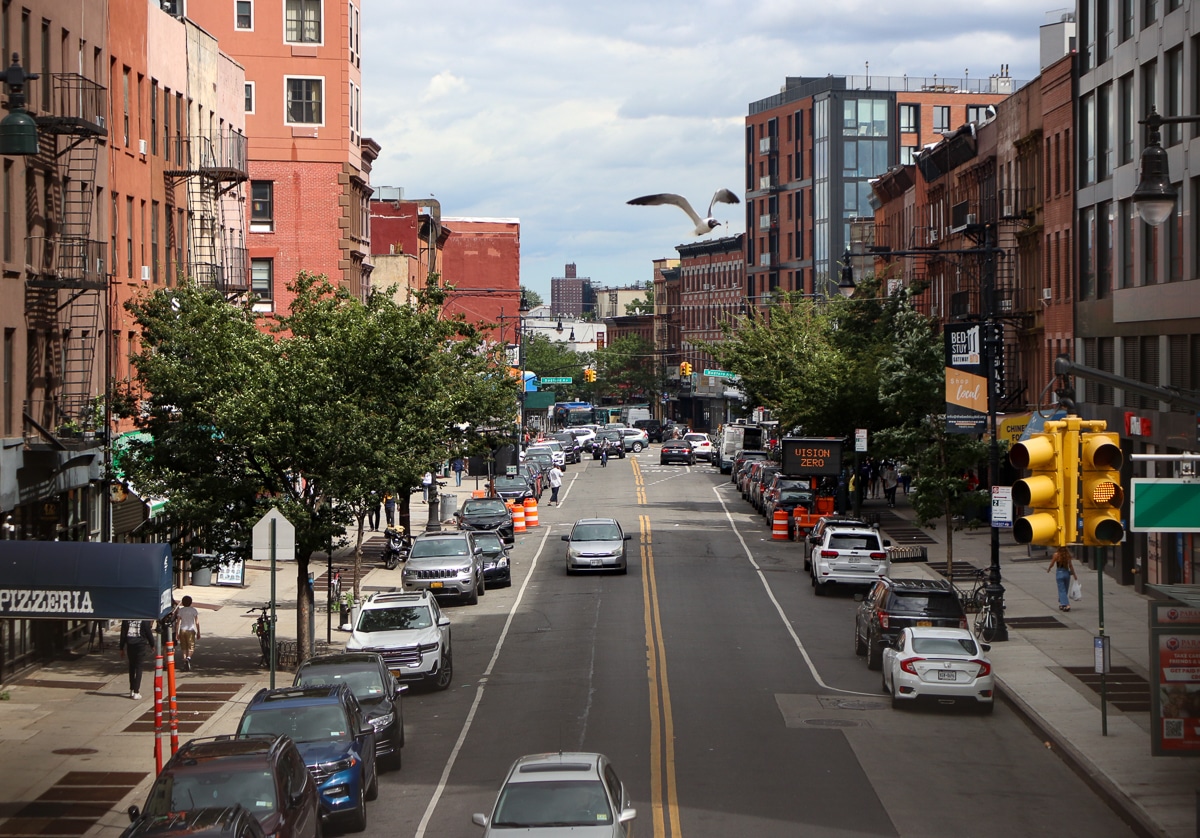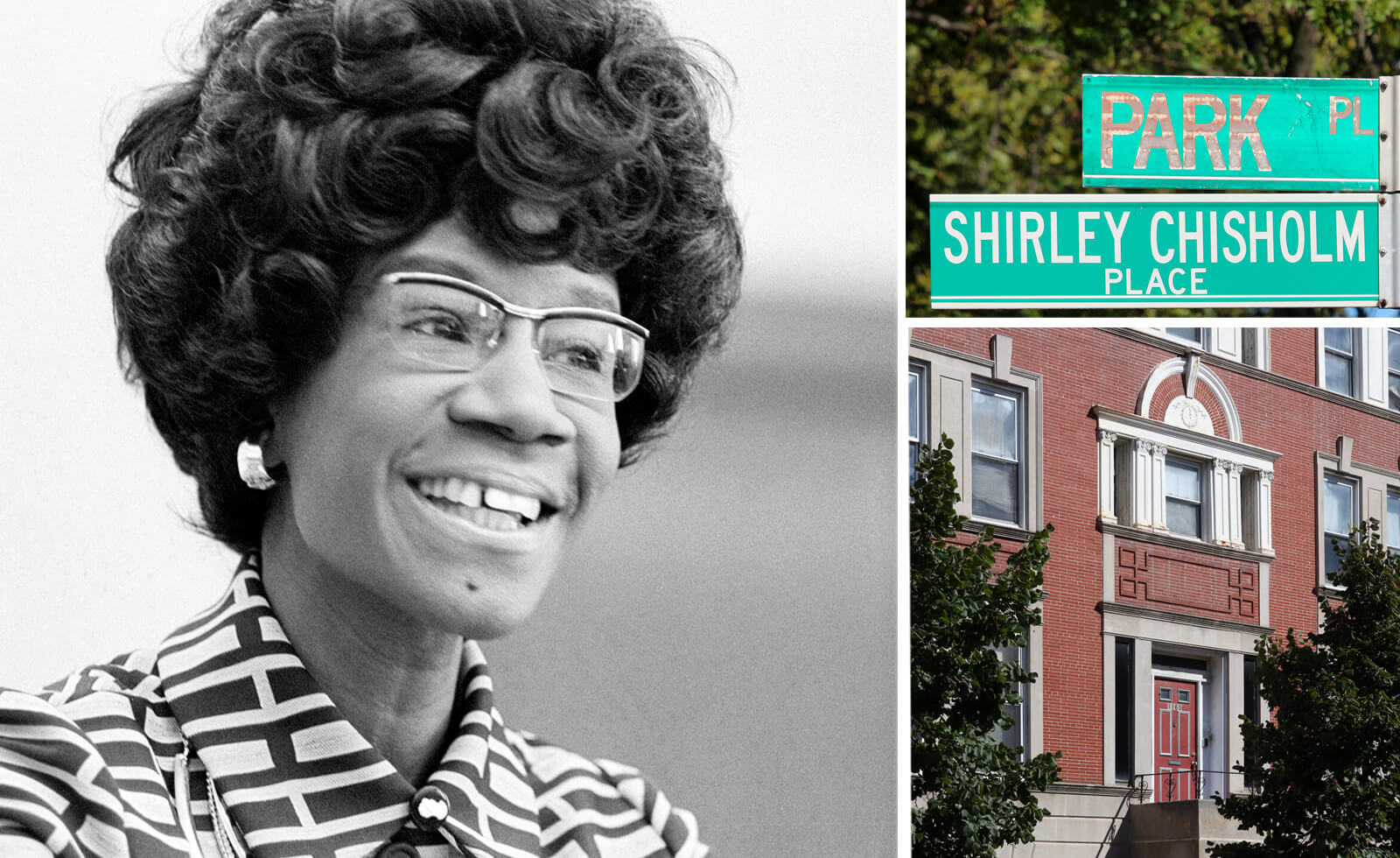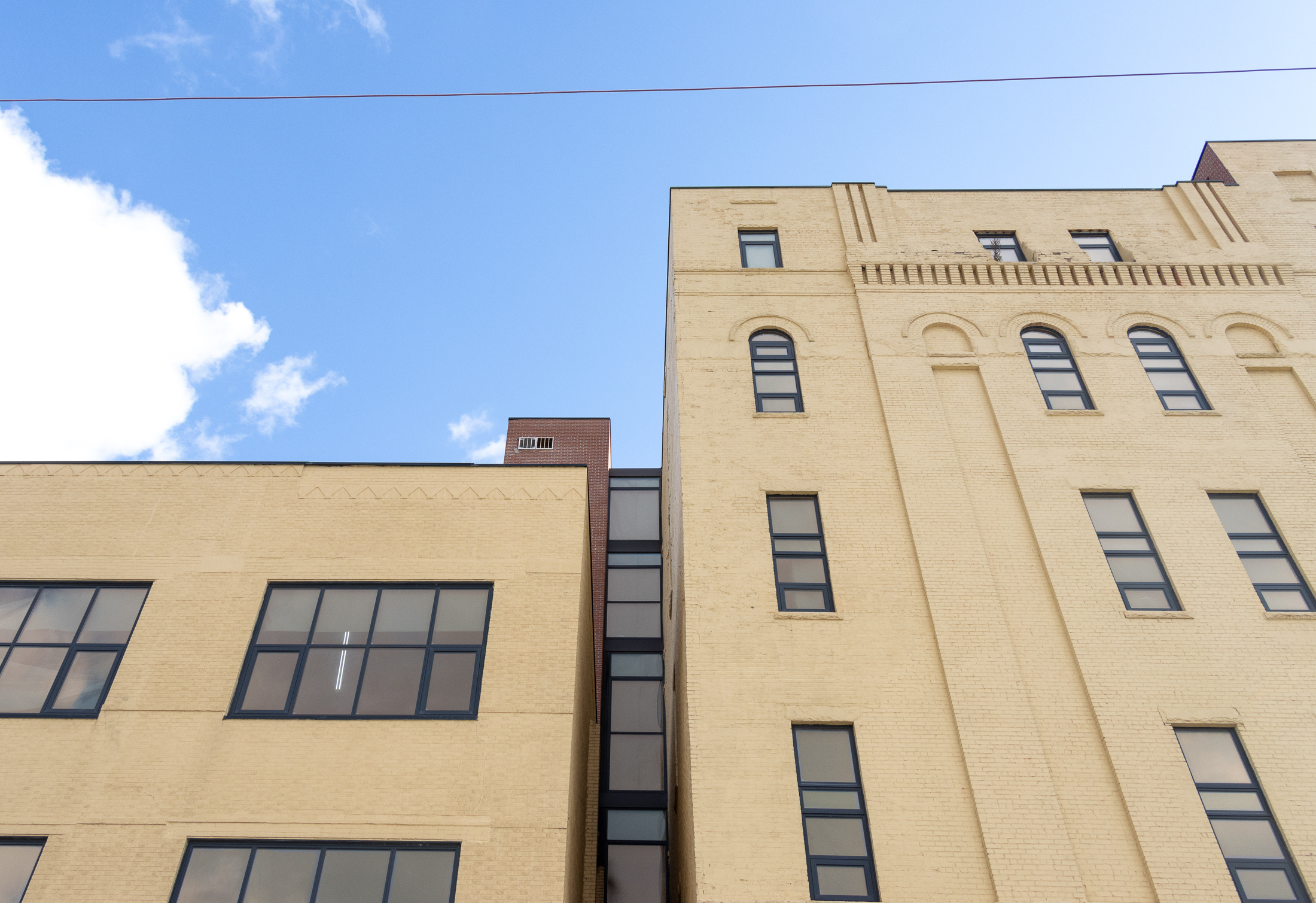Contractors Indicted for Allegedly Bribing Supers at Brooklyn NYCHA Complexes
Nine contractors have been charged with bribing NYCHA superintendents in exchange for small repair contracts.

Red Hook Houses, 2017. Photo by Susan De Vries
Nine contractors have been charged with bribing NYCHA superintendents in exchange for small repair contracts, Brooklyn District Attorney Eric Gonzalez announced Monday, noting that the problem is likely far more widespread.
Over a two-year period, city investigators went undercover as supers in two Brooklyn complexes, Red Hook Houses in Red Hook and Lafayette Gardens in Clinton Hill, aiming to snag deviant contractors attempting to provide kickbacks in exchange for securing an inflated contract to conduct small fixes such as window repairs, chain-link fence installation, and tile work.
The nine defendants proffered 35 bribes totaling about $20,000 cash, two $500 gift cards, and four bottles of Johnnie Walker scotch (three black label and one white label), the DA said.
“They knew what they were doing was wrong,” Gonzalez said at a press conference announcing the indictments. “There’s no question that they thought they were just being nice and providing a gift. They understood that what was happening was inappropriate.”
The DA said he hopes the indictments send a message to other supers and contractors not to engage in similar schemes that defraud the taxpayers and negatively impact NYCHA residents’ quality of life.
“Honest contractors stand no chance of doing the work if you have to corrupt the process in order to be awarded the contract,” Gonzalez said. “The residents of NYCHA often live in conditions that are deplorable, and we definitely need a system that works to their advantage to get things done quickly, but they deserve to have the best contractors working to fix items inside NYCHA without this corrupt process.”
Under current NYCHA regulations, “micro-purchase” contracts worth less than $10,000 can be awarded by supers without going through a competitive bidding process, which is intended to allow for small repairs to be addressed quickly, so residents do not have to wait for the conclusion of a long, arduous bidding war. The flip side, though, is that small contracts are rife for graft similar to those in the indictments.
Margaret Garnett, commissioner of the Department of Investigation, said that while the work was completed in all but one of the cases, allowing bribery to become the cost of doing business sends a message that contractors do not have to perform their work to the best of their ability.
“When it becomes commonplace for bribes to be paid, that really removes any incentive to do good work and be responsive and provide value for the taxpayers’ dollar,” Garnett said.
Some of the defendants were captured on videos secretly recorded by city investigators. One video shows Chatranjit Singh, of Fine Touch Construction in Queens, offering a $500 gift card to the investigator posing as a super, who then offers work on doors at Lafayette Gardens.
Another shows defendant Guriqbal Singh (no relation to Chatranjit) allegedly handing over $600 in cash in an elevator, and getting agitated when he sees a security camera, which the undercover investigator claims is not working. Another shows defendant Davinder Singh (seven of the nine defendants are named Singh, but only some are related to others; Davinder is not related to Chatranjit or Guriqbal) questioning an investigator, which the DA alleges to be scoping out whether he’ll take a bribe, and 15 minutes later handing over what the DA alleges to be $1,000.
Garnett said DOI has issued policy recommendations for NYCHA to implement to address the “vulnerabilities” exposed in the indictments. Those include moving responsibility for doling out small-dollar contracts from supers to NYCHA’s central office and adopting a “fixed-price list” for common micro-purchase repairs to prevent contractors from stiffing the housing authority.
In a statement, NYCHA spokesperson Rochel Leah Goldblatt said that the housing authority had worked in partnership with DOI on the investigation and that it was already implementing procurement reforms as part of the NYCHA Transformation Plan, aka the NYCHA Blueprint, which was mandated as part of a consent decree between the city and the feds.
“NYCHA has zero tolerance for these illegal acts committed by staff and vendors, and worked in partnership with DOI on this investigation,” Goldblatt said. “We have implemented significant changes to the systems to prevent this type of malfeasance, including updates and modifications to purchasing oversight, how contracts are awarded and tracked, and post-award contract management. They are all being implemented as part of the Transformation Plan, which was mandated by the 2019 HUD Agreement, and we will continue to do the necessary work to improve.”
Goldblatt said that NYCHA is currently implementing a new procurement oversight entity called Purchasing, Logistics, and Inventory (PLI), which will be tasked with both approving micro-purchases and approving purchases within larger contracts. PLI onboarded a senior director in August and “development purchasing teams” are expected to be in place by 2022.
The authority is also implementing checks via the city’s PASSPort portal for contracts below $250,000, improvements to its oversight of contracts after they’re awarded, implementing “comprehensive” procurement training for staff, and adopting lifetime fixed prices for small purchases within larger contracts.
Editor’s note: A version of this story originally ran in Brooklyn Paper. Click here to see the original story.
Related Stories
- Eric Adams Puts Support Behind Gowanus Rezoning, Pending Investment in NYCHA
- NYCHA Mold Court Deal Faces Do-Over as Judge Moves to Protect All Tenants
- Brooklyn Public Housing Could Finally Get Urgently Needed Repairs, Due to Fed Shift
Email tips@brownstoner.com with further comments, questions or tips. Follow Brownstoner on Twitter and Instagram, and like us on Facebook.









What's Your Take? Leave a Comment